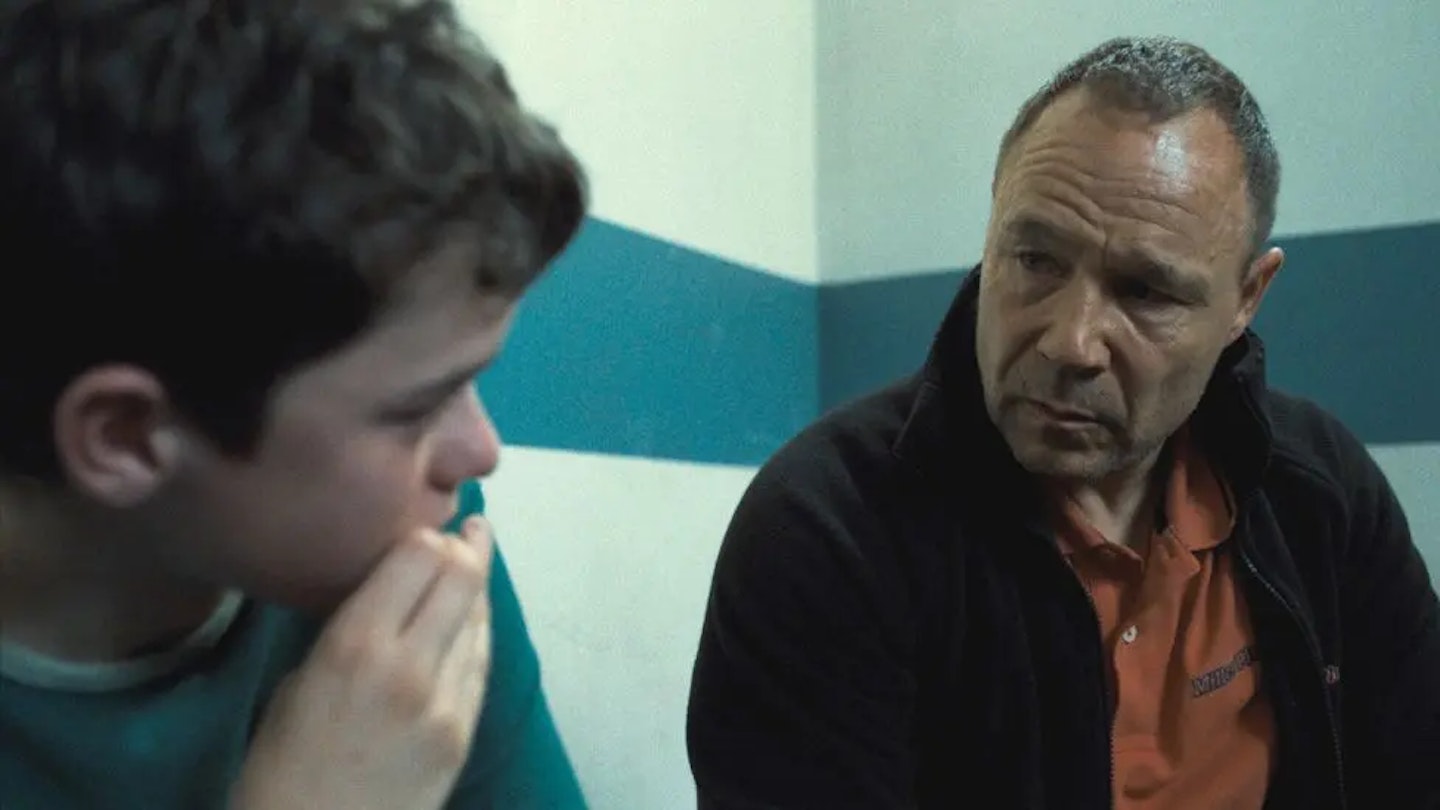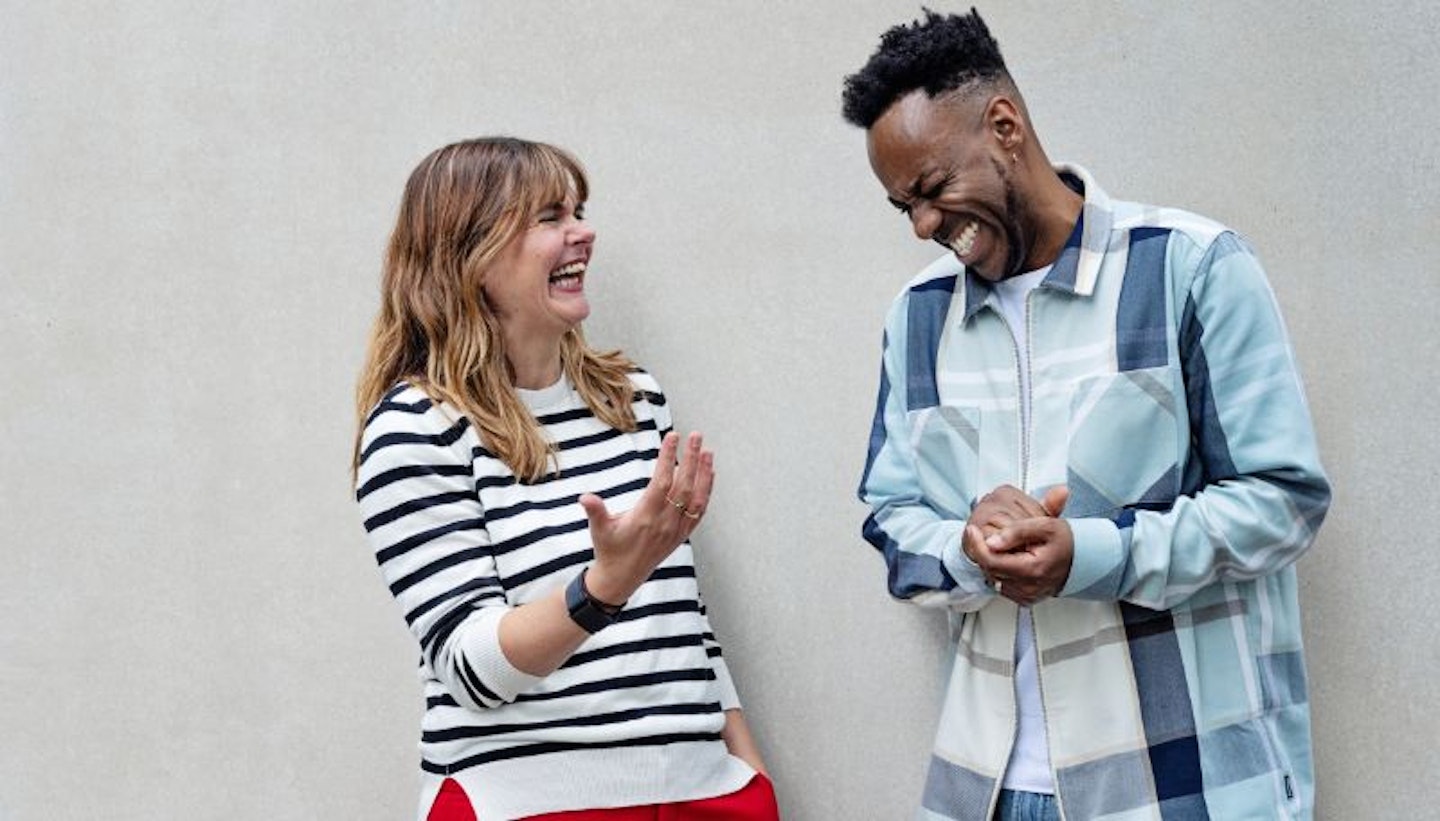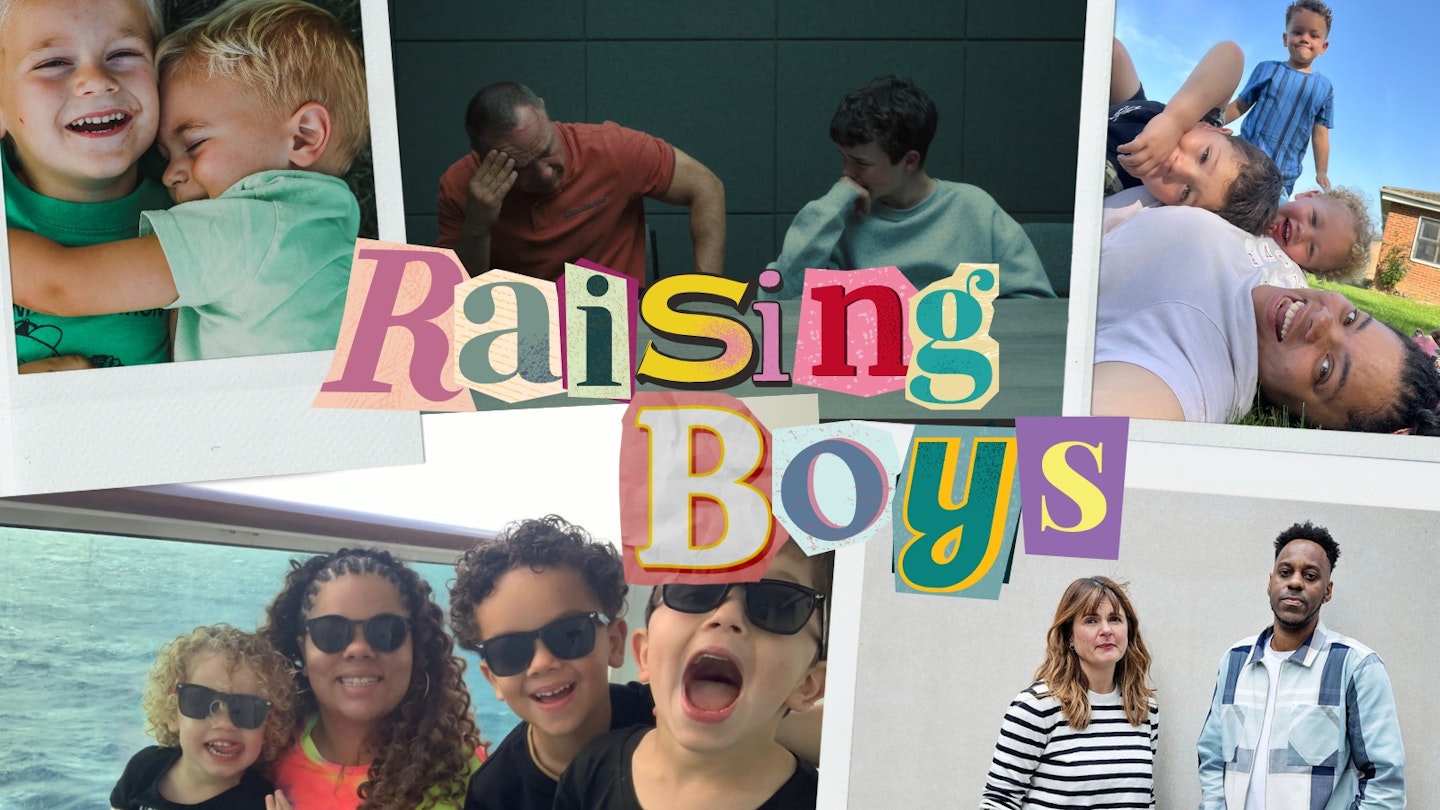Like most of the country, I was completely hooked on Netflix’s Adolescence, a mini-series that lays bare the struggles of young boys growing up in Britain today. It follows 13-year-old Jamie Miller, who is arrested for murdering his classmate and dives deep into themes of bullying, social media, and the dark corners of the incel subculture. As a mum raising three boys under eight, it left me rattled. How do I bring up sons who respect women - and themselves?
I spoke to the hosts of To Be A Boy, a podcast tackling this very question. The show is hosted by the UK’s leading voices on fatherhood and masculinity, Elliott Rae and Joeli Brearley, who you might know as the powerhouse behind Pregnant Then Screwed.
25 per cent of three and four-year-olds already own a smartphone, and half of children under 13 are on social media.
- Ofcom
The reality of raising boys today
Adolescence highlighted just how vulnerable young boys can be to the dangers of social media and the online world. But the truth is, these influences don’t suddenly appear when they hit their teenage years, they start much earlier. Whether your little one is just beginning to show an interest in screens or is already a pro at navigating YouTube, digital devices are shaping their world in ways we cannot even begin to understand.
"I feel that we are really underprepared at the moment because the modern world is a new world," explains Joeli. "The conversations that I'm having online and in person with parents, feels like we don't really know what we're doing. So I hope that through the podcast, people will feel a sense of solidarity and comfort with the fact that many of us are struggling with the same things."
According to a recent Ofcom report, more than 25 per cent of three and four-year-olds already own a smartphone, and half of children under 13 are on social media.
From the innocent-looking videos kids stumble across, to the way algorithms start to understand their interests before they do, the online world is woven into childhood now more than ever. A 2024 study found that misogynist manosphere content was sent to child users regardless of whether those accounts actively searched for it.
While I am the first to admit that devices can be a lifesaver on long car journeys or when you just need five minutes to drink a hot cup of tea, it’s worth thinking about the long-term impact of screen time. The content they’re exposed to and how early habits is shaping the way they grow up.
Elliott says, "When we were growing up, there was the outside world and those dangers still exist now, but now there's a whole other world that kids have access to. So I think we have to then be a little bit more proactive than our parents were."
A study found that misogynist manosphere content was sent to child user
regardless of whether those accounts actively searched for it.Dublin City University’s Anti-Bullying Centre

The role of parents: What can we do?
The moment your child gets their hands on a device, you’re essentially inviting an extra voice into the room, one that doesn’t always have their best interests at heart. Even if they’re not reading yet, they can still stumble across videos that are far from kid-friendly. Trust me, I’ve been there. Like the time my three-year-old was happily watching car videos on my phone, and before I knew it, he was glued to a Grand Theft Auto police chase. Not my proudest parenting moment.
Keeping your eyes and ears open
Platforms like YouTube Kids, Roblox, and Fortnite do offer parental controls, but the truth is that they’re more of a safety net than a foolproof solution. At the end of the day, you really need to be keeping a close keeping an eye (and an ear) on what they’re watching and playing, something that can feel tricky when you already have so much on your plate as a parent.
Rolemodelling
It’s also crucial to role model healthy behaviour for your child. Kids are always watching, even when you think they’re not, so the way you handle stress, conflict, and even just everyday situations speaks volumes. We aren't saying that you suddenly have to become perfect, none of us are, but in those moments when your behaviour is less than perfect, speak to your child, explain and if necessary, apologise. It’s a chance to show them accountability and that everyone, even adults, makes mistakes.
Postive male role models
Having positive male role models around, whether that’s a dad, uncle, or family friend, can also make a difference, too. Elliott credits his own father and uncles in helping to shape the man he has become. It helps show your child what it looks like to be kind, strong, and supportive without all the glitz and bravado of the internet.
Showing emotions
Equally important is showing emotions. It’s okay to let your kids see that you’re human, that you get angry, happy, or even upset sometimes. When you healthily express your feelings, you’re teaching them that emotions are normal and should be dealt with openly, not buried.
Speaking to your sons - and daughters
Speaking of openness, fostering an environment where you talk honestly with your child about anything and everything, builds trust. Joeli has started speaking to her sons about situations in her own friendships and private life and asking for advice, which she hopes in turn will encourage them to come to her when they need advice - a top tip she learned from experts on the show.
Expressing emotions
When you show them that it's okay to manage their emotional development, they’ll feel more comfortable doing the same with you. That connection, where they know they can always come to you with what's on their mind, is priceless.
A conversation that needs to happen

The hosts of To Be A Boy are both parents, giving the show genuine authenticity (and humour) in each episode. Joeli is ridiculously relatable, the kind of person who makes you feel like you're chatting with your best mate in the pub. Elliott, on the other hand, is a walking encyclopedia of facts that will both terrify and enlighten you, peppered with anecdotes that hit you right in the heart. Their chemistry as hosts makes this my new favourite parenting podcast, and each week, they bring in experts to dive deep into what it really takes to raise boys in today’s world.
Are we getting it wrong, or are we just learning?
As parents, we’re all just trying our best to turn our little people into brilliant humans. And while there's never been more information available - these days, you can literally read a book on how to be a parent - the job itself is ever-changing. Just when you think you’ve nailed one milestone, another challenge pops up right around the corner.
That’s why conversations about raising boys are so important, ones we should all be having. There are some troubling statistics, especially for those of us raising boys. For example, boys consistently underperform compared to girls in education across nearly all age groups and ethnicities. As a society, we need to come together to ensure our boys have the support they need to grow into happy, healthy men.
"I hope that we give people not an instruction manual, but some guidance that makes them not panic and makes them feel a bit more in control of the current situation," says Joeli.
Elliott adds, "I hope this conversation becomes more mainstream, where accessing information about raising boys is the norm. Where there are more experts, more books, and more resources like our podcast that make the topic engaging and digestible, encouraging more parents to think about it consciously.
"One of our guests put it well: If you’re reading a book or listening to a podcast about parenting boys, you’re probably already doing a good job. Just being interested, that is half the battle."
So, to finish where I started, I don’t think we’re getting raising boys all wrong. But I do think we need to be more intentional, starting as early as possible, about how we support and guide our boys through a world that isn’t always built for their emotional well-being.
"If you’re reading a book or listening to a podcast about parenting boys, you’re probably already doing a good job. Just being interested, that is half the battle."
- Elliott Rae
Hannah Carroll is our Senior Digital Writer. In her capacity, she curates top-notch listicles, crafts insightful how-to guides, and delivers expert product reviews. As a mother of three, Hannah draws upon her comprehensive understanding of all facets of family life to bring true insight into all the products that make running a home easier.
